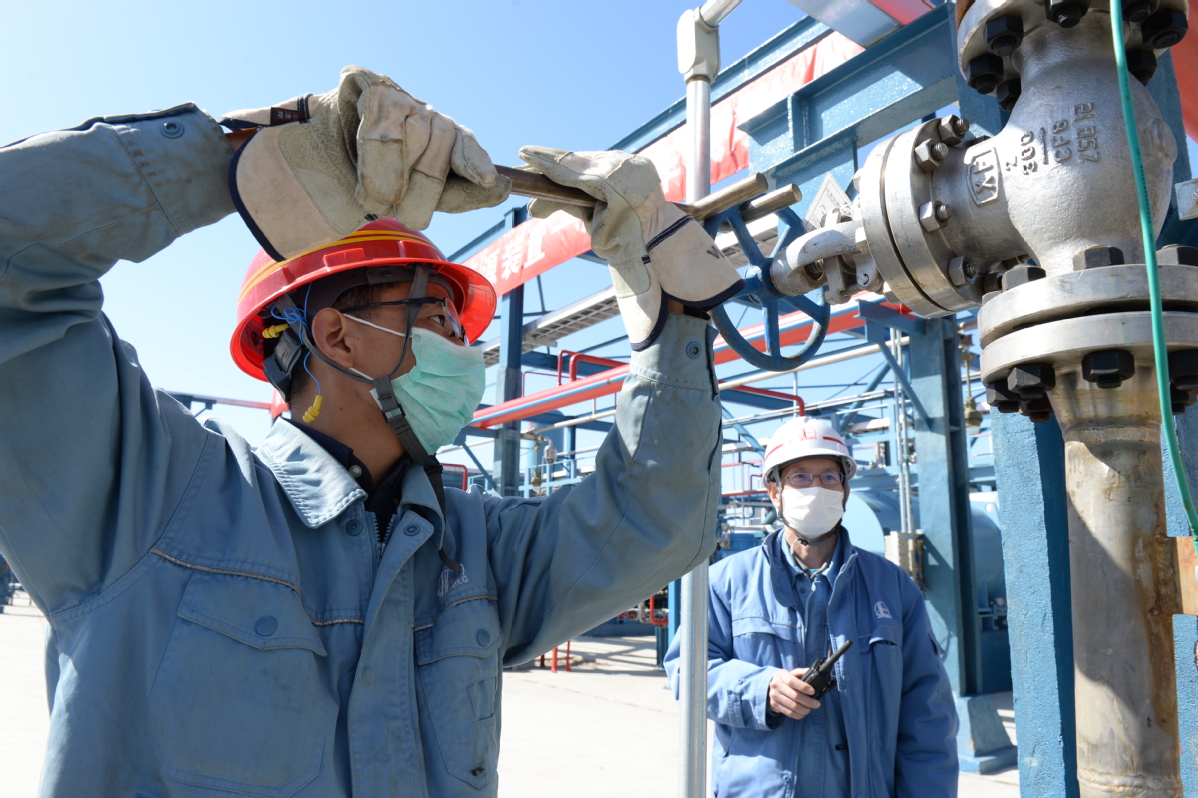Sinopec unit committed to sustainable alternatives


Sinopec Yanshan Petrochemical Co, a subsidiary of China Petroleum and Chemical Corp (Sinopec), pledged to further push forward research and development of hydrogen fuel-cell vehicles through cooperation with automaker BAIC Group.
The petrochemical company said it would further cooperate with BAIC to supply hydrogen fuel-a fuel that does not result in the release of carbon dioxide-to take advantage of its existing network of more than 30,000 retail stations and its experience in producing hydrogen for its refining and chemical plants.
The two sides will further cooperate in scientific innovation and energy application to come up with a hydrogen fuel-cell vehicle demonstration industry cluster.
Many developed countries have been actively deploying their strategic hydrogen industrial layout, including the United States and Japan. China also plans to have 50,000 hydrogen-powered vehicles on its roads by 2025 and 1 million by 2030.
China Petroleum and Chemical Corp is one of China's largest producers of hydrogen, producing over 3 million metric tons last year, mostly made from fossil fuels or produced as a by-product of its refining and chemical operations. For example, Sinopec's Shanghai hydrogen refueling stations are supplied by purified by-product hydrogen from the Gaoqiao petrochemical facility based in the city.
It had already built four combined oil-hydrogen refueling stations that combine hydrogen refueling infrastructure with conventional diesel and gasoline filling facilities in 2019. It plans a further 20 combined oil-hydrogen fueling stations in Guangzhou, Guangdong province.
Joseph Jacobelli, an independent energy analyst and executive vice-president for Asia at Cenfura Ltd, said China has had a good track record in developing clean or renewable energy technologies such as solar and onshore wind, and hydrogen will take longer until appropriate infrastructure is in place.
Hydrogen is an inevitable choice for the country to reduce emissions and develop the automobile industry in the long term, Jacobelli said.
Sinopec is also constructing a by-product hydrogen purification plant at its Yanshan Petrochemical facility in Beijing, with a purification capacity of 2,000 cubic meters an hour. This will also support the sustainability agenda of the Winter Olympics in 2022, when there are expected to be more than 2,000 fuel-cell vehicles in the Zhangjiakou Olympic compound, which will then require a significant increase in refueling infrastructure.




































